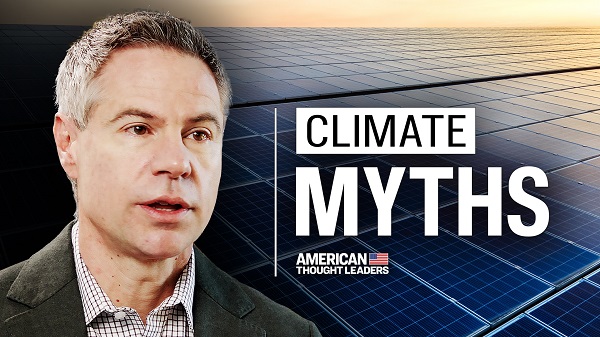Business
Overregulation is choking Canadian businesses, says the MEI

 From the Montreal Economic Institute
From the Montreal Economic Institute
The federal government’s growing regulatory burden on businesses is holding Canada back and must be urgently reviewed, argues a new publication from the MEI released this morning.
“Regulation creep is a real thing, and Ottawa has been fuelling it for decades,” says Krystle Wittevrongel, director of research at the MEI and coauthor of the Viewpoint. “Regulations are passed but rarely reviewed, making it burdensome to run a business, or even too costly to get started.”
Between 2006 and 2021, the number of federal regulatory requirements in Canada rose by 37 per cent, from 234,200 to 320,900. This is estimated to have reduced real GDP growth by 1.7 percentage points, employment growth by 1.3 percentage points, and labour productivity by 0.4 percentage points, according to recent Statistics Canada data.
Small businesses are disproportionately impacted by the proliferation of new regulations.
In 2024, firms with fewer than five employees pay over $10,200 per employee in regulatory and red tape compliance costs, compared to roughly $1,400 per employee for businesses with 100 or more employees, according to data from the Canadian Federation of Independent Business.
Overall, Canadian businesses spend 768 million hours a year on compliance, which is equivalent to almost 394,000 full-time jobs. The costs to the economy in 2024 alone were over $51.5 billion.
It is hardly surprising in this context that entrepreneurship in Canada is on the decline. In the year 2000, 3 out of every 1,000 Canadians started a business. By 2022, that rate had fallen to just 1.3, representing a nearly 57 per cent drop since 2000.
The impact of regulation in particular is real: had Ottawa maintained the number of regulations at 2006 levels, Canada would have seen about 10 per cent more business start-ups in 2021, according to Statistics Canada.
The MEI researcher proposes a practical way to reevaluate the necessity of these regulations, applying a model based on the Chrétien government’s 1995 Program Review.
In the 1990s, the federal government launched a review process aimed at reducing federal spending. Over the course of two years, it successfully eliminated $12 billion in federal spending, a reduction of 9.7 per cent, and restored fiscal balance.
A similar approach applied to regulations could help identify rules that are outdated, duplicative, or unjustified.
The publication outlines six key questions to evaluate existing or proposed regulations:
- What is the purpose of the regulation?
- Does it serve the public interest?
- What is the role of the federal government and is its intervention necessary?
- What is the expected economic cost of the regulation?
- Is there a less costly or intrusive way to solve the problem the regulation seeks to address?
- Is there a net benefit?
According to OECD projections, Canada is expected to experience the lowest GDP per capita growth among advanced economies through 2060.
“Canada has just lived through a decade marked by weak growth, stagnant wages, and declining prosperity,” says Ms. Wittevrongel. “If policymakers are serious about reversing this trend, they must start by asking whether existing regulations are doing more harm than good.”
The MEI Viewpoint is available here.
* * *
The MEI is an independent public policy think tank with offices in Montreal, Ottawa, and Calgary. Through its publications, media appearances, and advisory services to policymakers, the MEI stimulates public policy debate and reforms based on sound economics and entrepreneurship.
Automotive
The high price of green virtue

By Jerome Gessaroli for Inside Policy
Reducing transportation emissions is a worthy goal, but policy must be guided by evidence, not ideology.
In the next few years, the average new vehicle in British Columbia could reach $80,000, not because of inflation, but largely because of provincial and federal climate policy. By forcing zero-emission-vehicle (ZEV) targets faster than the market can afford, both governments risk turning climate ambition into an affordability crisis.
EVs are part of the solution, but mandates that outpace market acceptance risk creating real-world challenges, ranging from cold-weather travel to sparse rural charging to the cost and inconvenience for drivers without home charging. As Victoria and Ottawa review their ZEV policies, the goal is to match ambition with evidence.
Introduced in 2019, BC’s mandate was meant to accelerate electrification and cut emissions from light-duty vehicles. In 2023, however, it became far more stringent, setting the most aggressive ZEV targets in North America. What began as a plan to boost ZEV adoption has now become policy orthodoxy. By 2030, automakers must ensure that 90 per cent of new light-duty vehicles sold in BC are zero-emission, regardless of what consumers want or can afford. The evidence suggests this approach is out of step with market realities.
The province isn’t alone in pursuing EV mandates, but its pace is unmatched. British Columbia, Quebec, and the federal government are the only ones in Canada with such rules. BC’s targets rise much faster than California’s, the jurisdiction that usually sets the bar on green-vehicle policy, though all have the same goal of making every new vehicle zero-emission by 2035.
According to Canadian Black Book, 2025 model EVs are about $17,800 more expensive than gas-powered vehicles. However, ever since Ottawa and BC removed EV purchase incentives, sales have fallen and have not yet recovered. Actual demand in BC sits near 16 per cent of new vehicle sales, well below the 26 per cent mandate for 2026. To close that gap, automakers may have to pay steep penalties or cut back on gas-vehicle sales to meet government goals.
The mandate also allows domestic automakers to meet their targets by purchasing credits from companies, such as Tesla, which hold surplus credits, transferring millions of dollars out of the country simply to comply with provincial rules. But even that workaround is not sustainable. As both federal and provincial mandates tighten, credit supplies will shrink and costs will rise, leaving automakers more likely to limit gas-vehicle sales.
It may be climate policy in intent, but in reality, it acts like a luxury tax on mobility. Higher new-vehicle prices are pushing consumers toward used cars, inflating second-hand prices, and keeping older, higher-emitting vehicles on the road longer. Lower-income and rural households are hit hardest, a perverse outcome for a policy meant to reduce emissions.
Infrastructure is another obstacle. Charging-station expansion and grid upgrades remain far behind what is needed to support mass electrification. Estimates suggest powering BC’s future EV fleet alone could require the electricity output of almost two additional Site C dams by 2040. In rural and northern regions, where distances are long and winters are harsh, drivers are understandably reluctant to switch. Beyond infrastructure, changing market and policy conditions now pose additional risks to Canada’s EV goals.
Major automakers have delayed or cancelled new EV models and battery-plant investments. The United States has scaled back or reversed federal and state EV targets and reoriented subsidies toward domestic manufacturing. These shifts are likely to slow EV model availability and investment across North America, pushing both British Columbia and Ottawa to reconsider how realistic their own targets are in more challenging market conditions.
Meanwhile, many Canadians are feeling the strain of record living costs. Recent polling by Abacus Data and Ipsos shows that most Canadians view rising living costs as the country’s most pressing challenge, with many saying the situation is worsening. In that climate, pressing ahead with aggressive mandates despite affordability concerns appears driven more by green ideology than by evidence. Consumers are not rejecting EVs. They are rejecting unrealistic timelines and unaffordable expectations.
Reducing transportation emissions is a worthy goal, but policy must be guided by evidence, not ideology. When targets become detached from real-world conditions, ideology replaces judgment. Pushing too hard risks backlash that can undo the very progress we are trying to achieve.
Neither British Columbia nor the federal government needs to abandon its clean-transportation objectives, but both need to adjust them. That means setting targets that match realistic adoption rates, as EVs become more affordable and capable, and allowing more flexible compliance based on emissions reductions rather than vehicle type. In simple terms, the goal should be cutting emissions, not forcing people to buy a specific type of car. These steps would align ambition with reality and ensure that environmental progress strengthens, rather than undermines, public trust.
With both Ottawa and Victoria reviewing their EV mandates, their next moves will show whether Canadian climate policy is driven by evidence or by ideology. Adjusting targets to reflect real-world affordability and adoption rates would signal pragmatism and strengthen public trust in the country’s clean-energy transition.
Jerome Gessaroli is a senior fellow at the Macdonald-Laurier Institute and leads the Sound Economic Policy Project at the BC Institute of British Columbia
Business
Carney shrugs off debt problem with more borrowing

Ottawa, we’ve got some problems.
The first problem is government debt is spiralling out of control because government spending is spiralling out of control. The second problem is no one within government is taking the first problem seriously.
Prime Minister Mark Carney’s first budget shows Ottawa will borrow about $80 billion this year.
Massive government borrowing means debt interest charges cost taxpayers more than $1 billion every week.
That’s enough money to build a brand-new hospital every week, but that money is going to the bond fund managers on Bay Street to pay interest on the government credit card.
Or think about it this way the next time you’re standing in the check-out line:
Every dollar you pay in federal sales tax goes to pay interest on the debt.
The government’s own non-partisan, independent budget watchdog pulled the fire alarm back in September.
“The current path we’re on in terms of federal debt as the share of the economy is unsustainable,” the Parliamentary Budget Officer said.
Here are other ways the PBO described the government’s financial situation:
Stupefying. Shocking. Something is going to break. Everybody should be concerned.
That’s how the PBO described the situation when he projected the deficit to be $10 billion lower than Carney’s deficit in Budget 2025.
How is Carney responding to Canada’s debt crunch? Instead of acting, Carney is obfuscating.
Instead of balancing the budget, Carney promises to balance the operating budget.
Carney isn’t balancing squat when he continues to borrow tens of billions of dollars every year. The closest Carney is willing to get to a balanced budget is a $57 billion deficit in 2029.
Instead of cutting the debt, Carney is changing the budget guardrails.
Even under the Trudeau government, politicians repeatedly promised to keep the debt as a share of the economy going down.
Carney used a sneaky sleight of hand in Budget 2025 to change that guardrail.
Because Carney’s debt will grow faster than Canada’s economy, he’s changing the previous guardrail of a declining debt-to-GDP ratio to a declining “deficit-to-GDP ratio.”
Carney plans to add $324 billion to the debt by 2030. For comparison, former prime minister Justin Trudeau planned to add $154 billion to the debt over those same years.
Instead of cutting spending, Carney muddies the waters with slogans of “spending less to invest more.”
The Carney government wrote Budget 2025 in a way to try to convince Canadians that it will save about $60 billion over five years.
But the government is spending billions of dollars more every year.
The government will spend $581 billion this year. That’s $38 billion more than the government spent last year. The government will spend $644 billion in 2029.
Does that look like saving money to you?
Even if you want to be as charitable as possible, nearly all the savings Carney promises to find occur in future years.
This should give taxpayers flashbacks of the Trudeau era.
Trudeau initially promised to run “modest” deficits and balance the budget in four years. But Trudeau never balanced the budget, he doubled the debt.
Trudeau promised to find $15 billion in savings. But Trudeau never cut spending, he ballooned the bureaucracy and spent billions more.
Here’s the key lesson: When the government promises to start its diet on Monday, Monday never comes.
The government debt problem is serious.
The government is now wasting more money paying interest on the debt than it sends to provinces in health-care transfers. In 2029, thirteen cents of every dollar the government takes will be used to make debt interest payments.
But instead of acting, Carney is trying to convince Canadians that everything is fine.
Instead of acting, Carney is using slogans and changing budget guardrails to paint a rosier picture of government finances.
Carney needs to change course. Shrugging off the debt won’t make things better. Only urgent action to cut spending will.
-

 espionage1 day ago
espionage1 day agoChinese-Owned Trailer Park Beside U.S. Stealth Bomber Base Linked to Alleged Vancouver Repression Case
-

 Digital ID2 days ago
Digital ID2 days agoCanada moves forward with digital identification for federal benefits seekers
-

 Alberta2 days ago
Alberta2 days agoSchool defunding petition in Alberta is a warning to parents
-

 Business2 days ago
Business2 days agoLiberals refuse to disclose the amount of taxpayer dollars headed to LGBT projects in foreign countries
-

 Daily Caller1 day ago
Daily Caller1 day agoLaura Ingraham Presses Trump On Allowing Flood Of Chinese Students Into US
-

 Crime1 day ago
Crime1 day agoCBSA Bust Uncovers Mexican Cartel Network in Montreal High-Rise, Moving Hundreds Across Canada-U.S. Border
-

 Daily Caller1 day ago
Daily Caller1 day agoUS Nuclear Bomber Fleet Shares Fence With Trailer Park Linked To Chinese Intel-Tied Fraudster
-

 Environment1 day ago
Environment1 day agoThe Myths We’re Told About Climate Change | Michael Shellenberger






